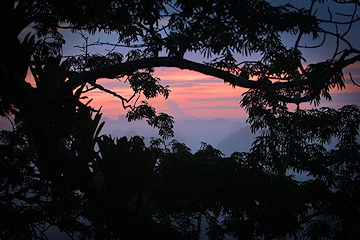In June 2012, the production crew of Prehensile Productions will follow five Waorani studentsas they race to document their ancestors' knowledge before the last of their elders disappear.With it, the students will build an encyclopedia describing their way of life and forest, and teacha global audience and future Waorani generations the value of their culture and homeland.
Recording this information is especially critical within the next 18 months because the Ecuadorian government must reach a decision that will determine the fate of the most biologically diverse place on the planet, and the Waorani, who are one of the last remaining Amazonian tribes. Either the government receives $300 million from international donors, or they will begin drilling over 846 million barrels of oil from an untapped block of Yasuní National Park. Though monumental, this threat is nothing new to the indigenous people of this area. With poor resources for education, and a process of assimilation that has increasingly separated them from their traditional hunter-gatherer lifestyle, it has proved challenging for the Waorani to defend their biologically rich territory from the massive incursion of industry.
Determined to take matters into their own hands, they formulated a unique strategy to compileinformation to meld tradition with science, and old knowledge with new technology. With it, they are determined to prove to the outside world the ecological value of their homeland, and the importance of preserving their culture, which played a vital role in defending their homeland for thousands of years. The basic idea is simple -- record traditional knowledge of their forest and culture. The execution, however, is titanic. In order to compile this disappearing information, the Waorani students must locate and consult the last living elders, who are spread across a remote rainforest territory larger than the state of New Jersey. Once gathered, they will build a multimedia guide to educate their government and the outside world about the ecological importance of their homeland and their presence in it. With this new understanding, they hope to save this ecological Eden from development and devastation.

